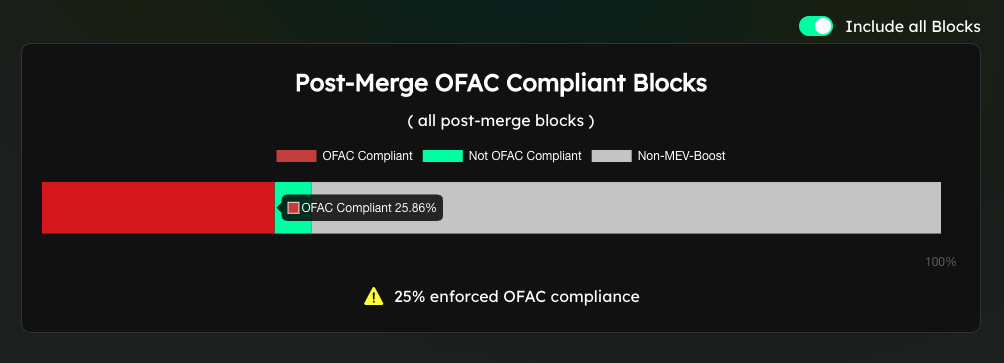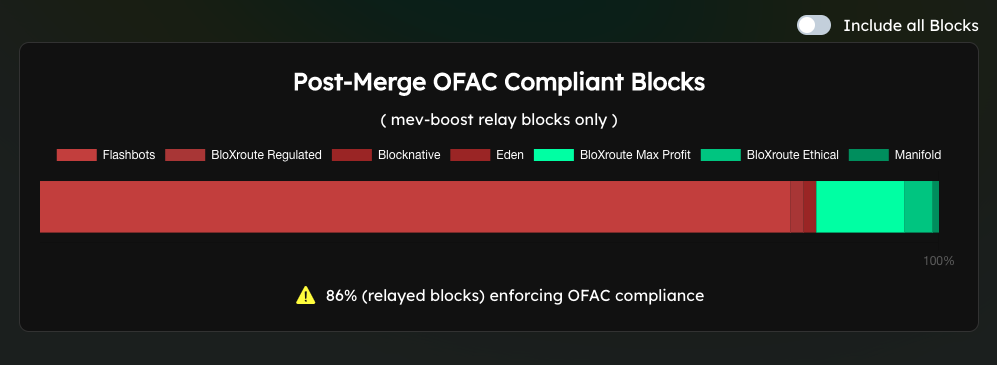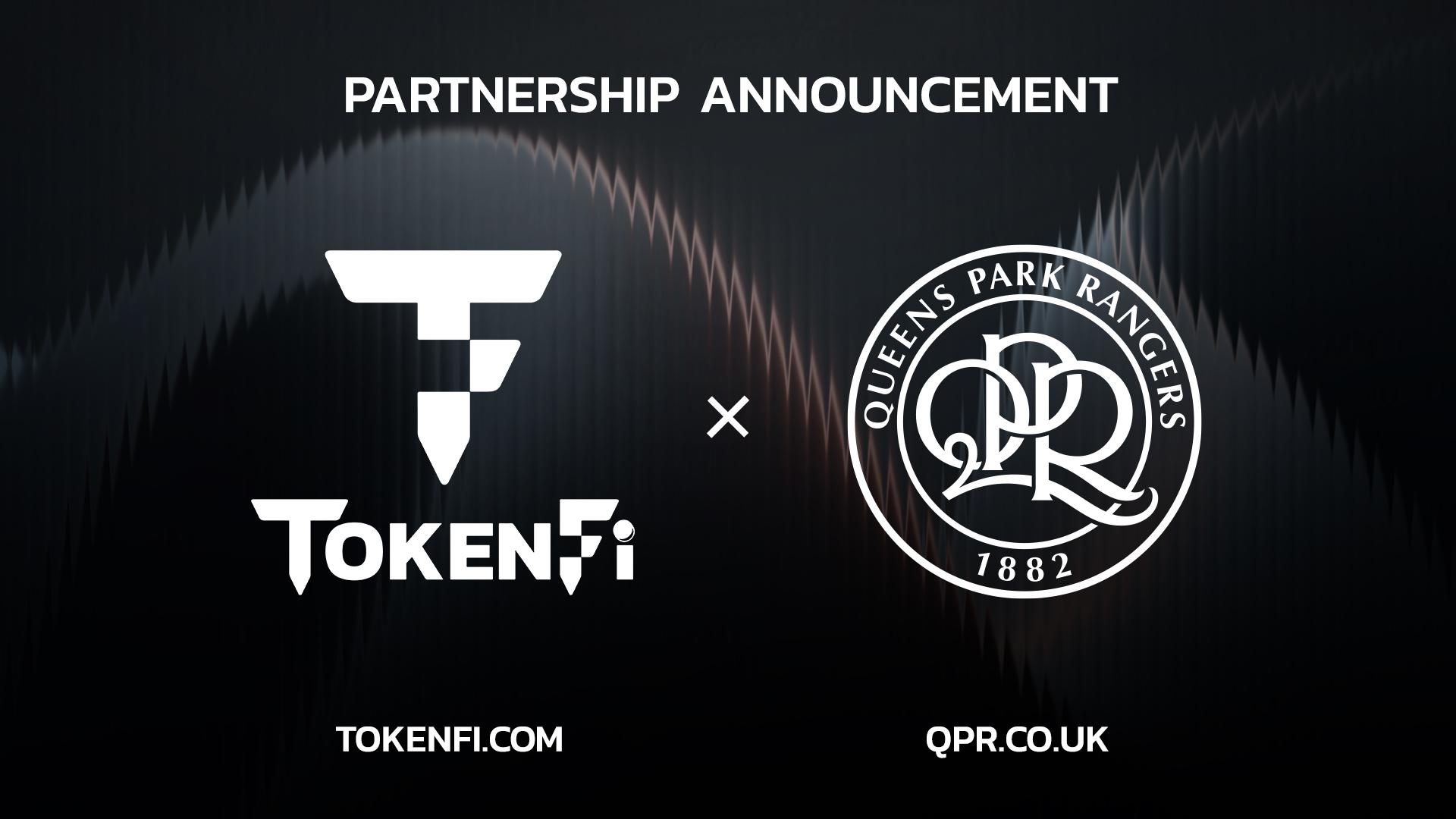According to Lachan Feeney, CEO of blockchain development firm Labrys, around 45% of all Ethereum blocks presently being confirmed use MEV-boost relay flashbots and adhere to US sanctions.

MEV-Boost relays are regulated corporations, generally situated in the United States, and are “censoring specific transactions in the blocks that they produce, primarily those from Tornado Cash,” according to Feeney.
The CEO also mentioned that validators had a financial incentive to employ MEV-Boost relays, which would lead to an increase in their utilization, noting:
“The issue, is that from the validators perspective, these guys are paying them to sort of do this. So if you want to make more money, you just turn this feature on and as a validator, you sort of boost your yield.”
According to reports, there may be grounds for concern over censorship on the Ethereum network. According to MEV Watch, some MEV-Boost relays are regulated by OFAC and can block specific transactions. Over 25% of Ethereum blocks are currently compliant with OFAC requirements.

MEV-Boost relays are centralized organizations dedicated to the effective extraction of Maximal Extractable Value (MEV). MEV-Boost relays, most commonly used by Flashbots, basically allow validators to outsource block production and sell the privilege to produce a block to the highest bidder.
On September 28, Labrys published an MEV Watch tool that may alert validators about whether MEV-Boost relays comply with OFAC penalties. Regarding the tool’s motivation, Feeney stated:
“We’re just trying to raise some awareness for those who are unaware that by running this software, they are potentially contributing to censorship of the network.”
According to the website, there are seven such significant MEV-Boost relays, just three of which do not filter transactions in accordance with OFAC standards.

As a result, transactions that connect with the Tornado Cash smart contract or any other sanctioned addresses will be excluded from those that comply with OFAC standards. Unsurprisingly, individuals in the crypto industry are concerned by this development.
DISCLAIMER: The Information on this website is provided as general market commentary and does not constitute investment advice. We encourage you to do your own research before investing.
Join us to keep track of news: https://linktr.ee/coincu
Website: coincu.com
Harold
CoinCu News























